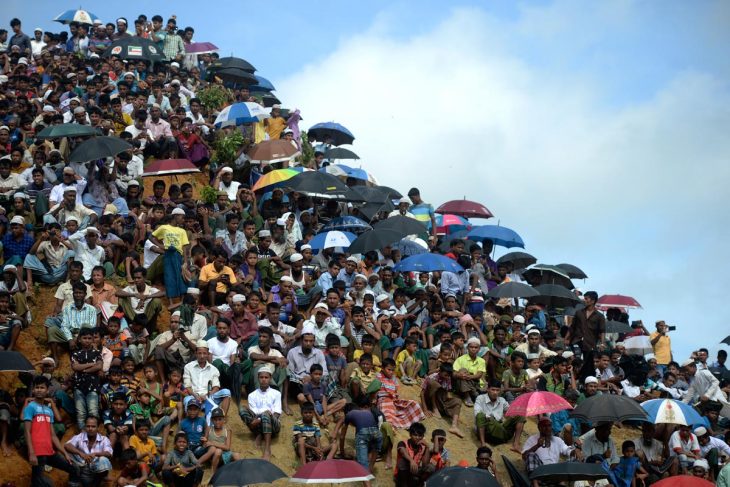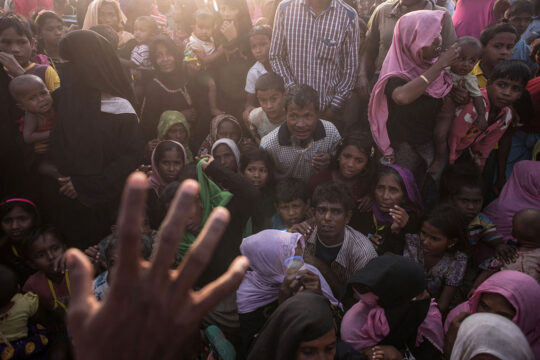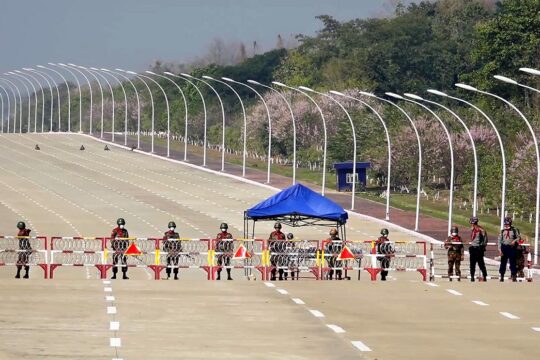If the International Court of Justice (ICJ) agrees to take up the case, it will be a number of firsts: first time the court is hearing a genocide claim by one country without a direct dispute between each other and the first time to look into genocide claims without any previous findings from other tribunals.
At a press conference in The Hague, Gambian’s Justice Minister Abubacarr Tambadou explained they had called on the International Court of Justice (ICC) to put in place immediate measures “to stop [Myanmar’s] ongoing atrocities and genocide against its own Rohingya people”. “It is a shame for our generation that we do nothing while genocide is unfolding right under our own eyes.”
The ICJ rules on disputes between states. Both Myanmar and Gambia are signatories to the 1948 Genocide Convention, which not only prohibits states from committing genocide but also compels all signatory states to prevent and punish the crime of genocide.
“The world cannot just stand by and watch”
It’s “a gamechanger” said Parampreet Singh, International Justice Program Human Rights Watch associate director. It’s “historic in many ways”, added Tambadou.
“I’m just the political face of this process,” said Tambadou, pointing to the large legal team from the US and UK and multiple human rights NGOs who have been involved in pushing for this action. The minister explained Gambia was filing the case on behalf of all members of the Organisation for Islamic Cooperation (OIC). The OIC representative confirmed to JI that the organization – representing 57 Muslim majority countries – is bankrolling what may be a very drawn out venture, taking six years or more.
Tambadou said that his personal experience had influenced him; he visited Rohingya refugees in Bangladesh in May 2018 and heard their stories. “I thought this was not right and the world cannot just stand by and watch this happen again,” he said. Before being appointed minister in 2017, Tambadou was working at the International Criminal Tribunal for Rwanda on the aftermath of the Rwandan genocide as a prosecutor.
Akila Radhakrishan, President of the World Justice Center, which has been part of the efforts to bring this case to the ICJ, including analysis of the gendered aspects of the genocide, told JusticeInfo that the Gambian experience trying to establish human rights and bring justice to victims since the removal of their dictatorship had also influenced the country’s willingness to step up.
“A small country with a big voice”
In the application to the ICJ, the vice-president of the Gambia, Isatou Touray, reportedly describes her state as “a small country with a big voice on matters of human rights on the continent and beyond”.
Rohingya activists at the press conference expressed their relief to finally have a court in which their experience can be discussed and characterized as a genocide: "This is monumental for the Rohingya community who have endured so much," said Canadian-based activist Yasmin Ullah. She and Singh called on other nations to join Gambia in the ICJ lawsuit.
The ICJ can hear a swift application for ‘provisional measures’ to prevent further violence against the Rohingya – an initial hearing is expected next month. But the full case, including any discussion of reparations, would take many more months or years to be scheduled.






